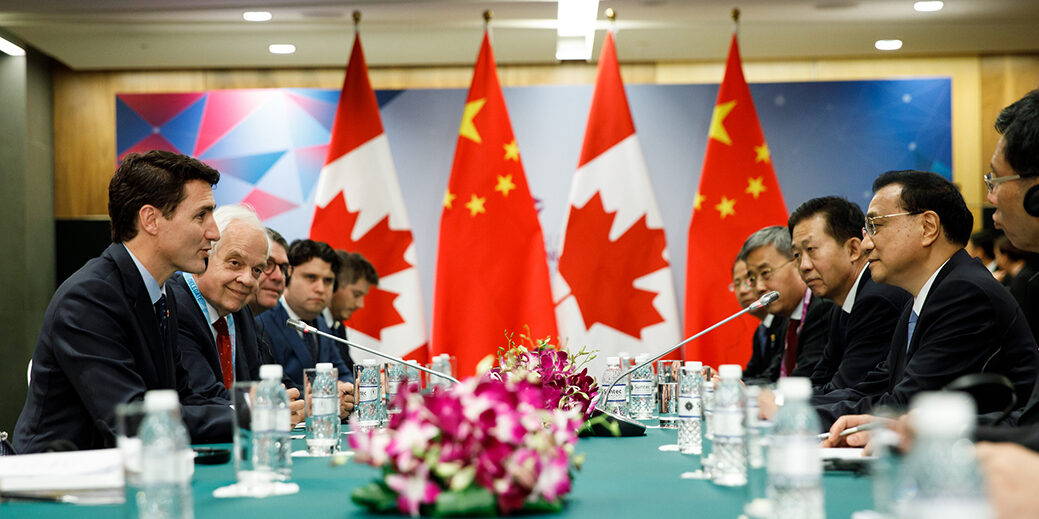Rule One: Avoid demonization.
I’d make this the first principle in forming Canadian policy toward Chinese interference and I offer it for consideration to special rapporteur David Johnston, who’s due to rapport to the government on the topic shortly. It’s why I’m not against the slow government reaction to Chinese actions here. Justin Trudeau said decisions on expelling diplomats etc. should be made “very, very carefully” and for the life of me, I don’t see why doing it in a rush is preferable. (If only they’d been as careful about changing the assisted dying act.) There are consequences.
Some are economic (Western farmers are just getting over China’s ban on canola), personal (the Michaels) and some involve racism. Florida now has laws preventing Chinese citizens from buying more than two acres of land that must be five miles from military bases. This is the Bugs Bunny-Yosemite Sam version of national security, to crush the U.S.’s “greatest geopolitical threat”: Chinese communists. Texas has land sale bans on Russians, Iranians, North Koreans. This kind of brainless, panicked, overwrought reaction thrived in the Cold War.
The Cold War was about demonization: us good, them evil. Maybe it was clever propagandizing by ruling groups or just reflected deep Manichaean drives in us to perceive reality in absolute moral terms. The result made people on both sides stupider than necessary and shattered many innocent lives.
In reality, most people and societies are morally complex. And most governments pursue self-interest, not absolute good. The U.S. supports Ukraine mainly to foster its goal of keeping Europe militarily subservient, not because it’s on the side of right. If not, why wouldn’t it also offer massive support to Sudan, a country on the verge of catastrophe that’s the size of Ukraine but gets scant attention?
I know this sounds like Whataboutism — as in: “What about if the U.S. did something as deplorable as China’s accused of?” — which I admit a fondness for. But the real point is to get some perspective instead of being panicked. Great powers, of which China is now one, try to shape reality in their own interests. For those of us on the margins, it helps to see things more calmly as we choose a course.
It turns out that Chinese interference was mainly about suppressing dissent at home in China, via threats to family members still there, not installing a pro-Chinese government in Canada. (There was similar panic in the U.S. about Russia controlling its 2016 election but by 2022 that had faded.) It is truly disgusting policy and deserves criminal charges, diplomatic expulsions and the like. Sadly, it’s not unusual. The U.S. is probably the champion of political interference and we have our own sad record regarding, say, the 2009 coup in Honduras.
It’s deplorable but not unique or demonic, and definitely not cause to panic.
It was panic about perceived unprecedented demonic forces that led to the despicable witch hunts of the Cold War (rather grander than those Trump whines about facing) and the threats of nuclear escalation unto extinction. It’s important to get a grip and one way is by hanging onto some perspective.
One of the few mitigating graces of the Cold War was that it didn’t draw heavily on racist tropes since the Soviets were perceived as white like us, the good guys. This is not the case with China, cast as the face of evil. The racist tool kit goes back centuries yet stays fresh; “Kung flu” didn’t materialize from nowhere.
That’s another compelling reason to be cautious and, dammit, slow, in forming a response. The call for foreign agent registries for instance, sounds sane but has racist potential. The U.S. has one and has now “stood up” to a Foreign Malign Influence Center, which to me echoes like the Cultural Barbaric practises tip line created by the Harper government in 2015. Slowly, please.
Great powers gonna power and fair warning to the rest of us. The least we can do is formulate our own responses instead of acting on their cues.
This column originally appeared in the Toronto Star.




